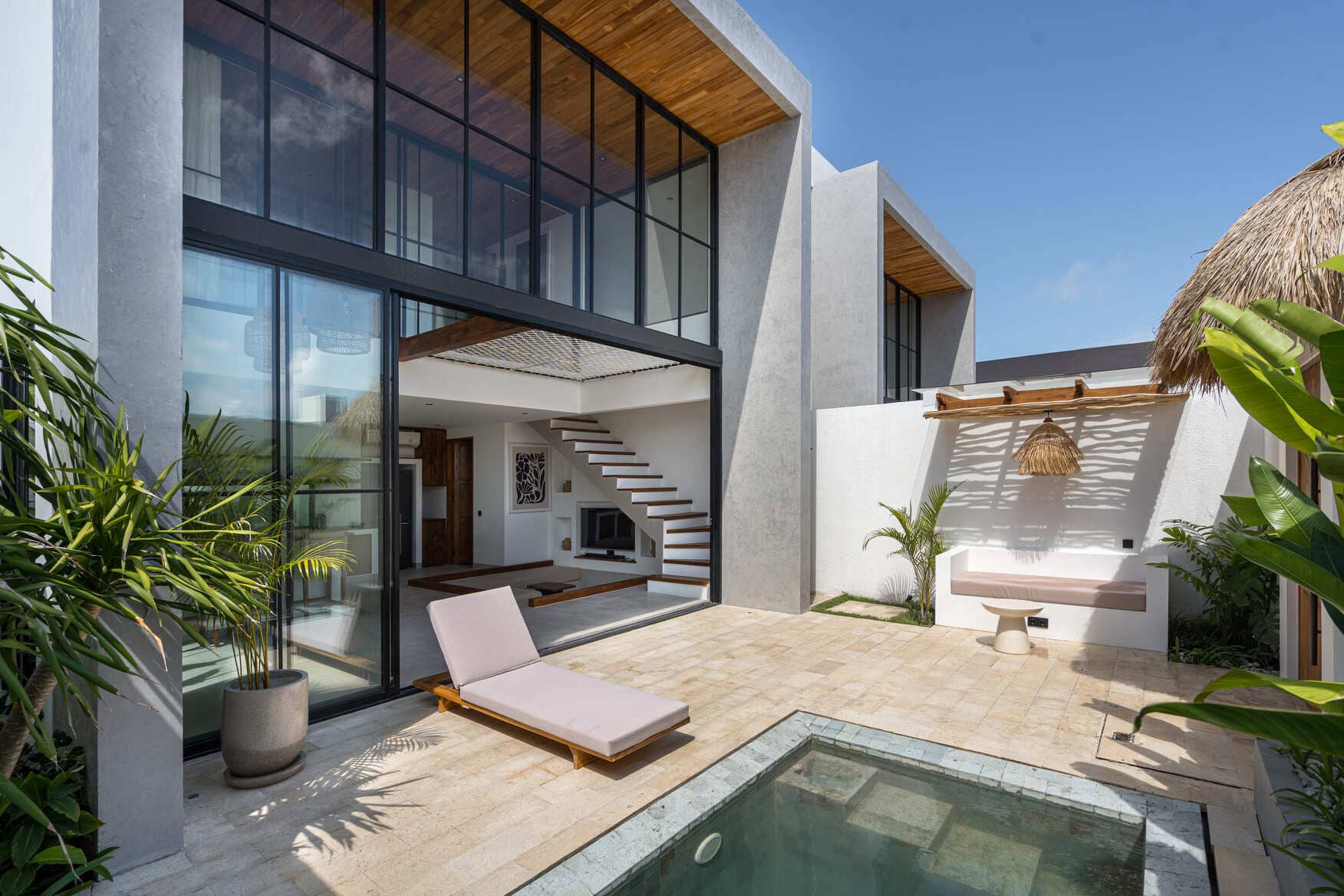
Bali’s booming property scene has made leasehold ownership a hot topic among international investors and long-term expats. With a standard lease term ranging from 25 to 30 years or beyond, many buyers are drawn by the lower upfront cost and the strong rental yields, especially in high-demand areas like Uluwatu, Bingin, Nyang - Nyang. But here’s the catch: leasehold isn’t forever. Unless you extend it, the property remains with the landowners.
For anyone considering a long-term Bali leasehold investment, understanding how lease extensions work is essential for protecting both rental income and asset value.
This leads to a crucial question for anyone invested in Bali property:
In this guide, we’ll unpack everything you need to know, including how the extension process unfolds, when to begin negotiations, what legal steps to prepare for, and where most people trip up. Whether you're nearing the end of your lease or planning ahead, understanding these mechanics could be the difference between a smooth renewal and a costly nightmare.
Let’s break it all down.
In Bali, leasehold agreements are typically set for 25 to 35 years, giving foreign investors the legal right to use the land and property for that period. This structure makes Bali’s property market accessible and attractive compared to freehold ownership, which is more difficult for foreigners to get. To understand the long-term trade-offs, check out our detailed comparison of Leasehold vs Freehold properties in Bali on the Yolla Blog. However, it is not just about securing the property today. It is about protecting its value well into the future.
Because a Bali leasehold is tied to a fixed timeline, knowing how much time is left and how extensions are handled, directly affects both your investment strategy and resale potential.
A lease extension is more than just a technicality. It is your safety net. With the right extension in place, you are not only prolonging your stay but also preserving the resale value and ongoing rental income potential of your villa. In popular areas where Bali villas for rent see consistent occupancy, keeping a healthy remaining lease length is one of the strongest factors influencing rental performance and investor demand. Without it, a property that once generated strong returns can lose appeal fast as the lease nears its end.
Many investors overlook one crucial detail: some contracts include pre-negotiated extension rights or clauses that specify a method or fixed price for renewal. Others leave it entirely up to future negotiation. Knowing which type of contract you have is the first step in building a sound extension strategy.
As we continue through the process in more detail, keep in mind that timing and clarity are everything. Working with experienced partners like Yolla can make this often complex process much easier to navigate.

One of the most common mistakes investors make in Bali is waiting too long to open the lease extension conversation. Ideally, you should begin negotiations years before your lease expires. It may sound early, but in reality it is the smartest move you can make to protect your investment.
Starting early gives you room to negotiate calmly without the pressure of an expiring contract hanging over you. It also helps you secure better pricing. Landowners are far more likely to offer favorable terms when the relationship has been maintained and the conversation is based on mutual benefit.
In addition, early discussions allow time to arrange the legal and financial aspects of the extension, as well as any required market research or valuations. This buffer ensures you are making a well-informed decision and prevents the kind of last-minute deals that often lead to overpayment or legal complications.
In short, the earlier you start, the stronger your position will be.
The process of a Bali leasehold extension varies widely depending on your contract structure, the landowner relationship, and current market values.
Negotiating a lease extension in Bali is a strategic process that depends on clarity, incentives, and timing. Understanding who you are talking to and what you are negotiating is key to securing a fair and smooth agreement.
The primary party in any lease extension negotiation is the landowner, also known as the freehold owner. While real estate agents or brokers can assist, advise, or facilitate, the landowner has the final say. This is why maintaining a positive relationship with the owner from the beginning is essential. A trust-based connection can mean the difference between an affordable extension and an inflated quote.
Open communication, cultural sensitivity, and goodwill go a long way when entering into these conversations. Bali is a relationship-driven place, and your behavior throughout the lease may influence how negotiations unfold.

The most common negotiation points involve the duration of the extension and the price.
Most lease extensions add between 10 - 30 years to the existing agreement. While some investors aim for the longest term possible, others base it on future ownership plans or return projections. Regardless, both parties must agree on the number.
Regarding price, there are generally two models:
It is important to note that the villa or building itself is not typically factored into the cost. Lease extensions focus exclusively on the land value. Understanding this can avoid surprises and allows for more accurate financial planning.
Market conditions have a direct impact on extension fees. If property values in the area have increased significantly due to demand, infrastructure, or development, the landowner may base the extension price on those current valuations.
This is where an independent property appraisal can be incredibly useful. Before committing to an extension fee, you can also project your long-term returns using our ROI calculator, giving you an objective sense of whether the new lease price aligns with your investment goals. A professional appraisal provides an objective reference point, ensuring the price you are quoted aligns with market realities. It also strengthens your position during negotiations by showing you have done your homework.
In short, lease extension negotiations rely on a blend of preparation, respect, and strategic timing. With the right support and information, you can secure your property for decades to come while protecting your investment potential.
Once the terms are agreed upon, a licensed notary, known locally as a PPAT, drafts the lease extension agreement. Their job is to ensure everything complies with Indonesian land law and that both parties are protected.
After signing the lease extension agreement and paying for it, the extension deed must be lodged with the National Land Agency, or BPN. This registration is essential to make the contract legally enforceable and to protect your rights should any disputes arise.
How to avoid them? Always review contracts carefully and consult legal counsel and notary. Working with an experienced Bali-based agent like Yolla ensures your lease extension is handled smoothly, securely, and in line with local law.
For a deeper look at the risks and safety considerations of investing in Bali property, read our guide: Is It Safe to Invest in Bali Property?
Extending a lease in Bali is a fair yet delicate process that requires foresight and clarity. With early planning, transparent communication, and proper legal guidance, you can secure your long-term investment with confidence. Understanding both the legal framework and cultural dynamics is key to achieving a smooth extension and protecting your asset.
Need help navigating your lease extension? Yolla offers experienced guidance to support you every step of the way. Reach out to our team for tailored advice and on-the-ground expertise in Bali.
